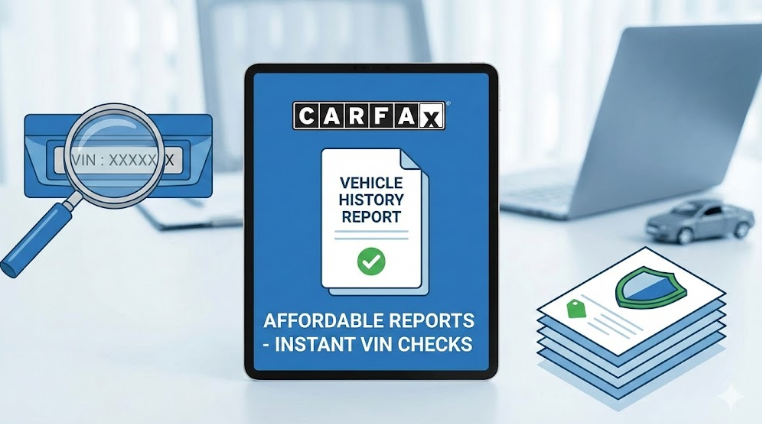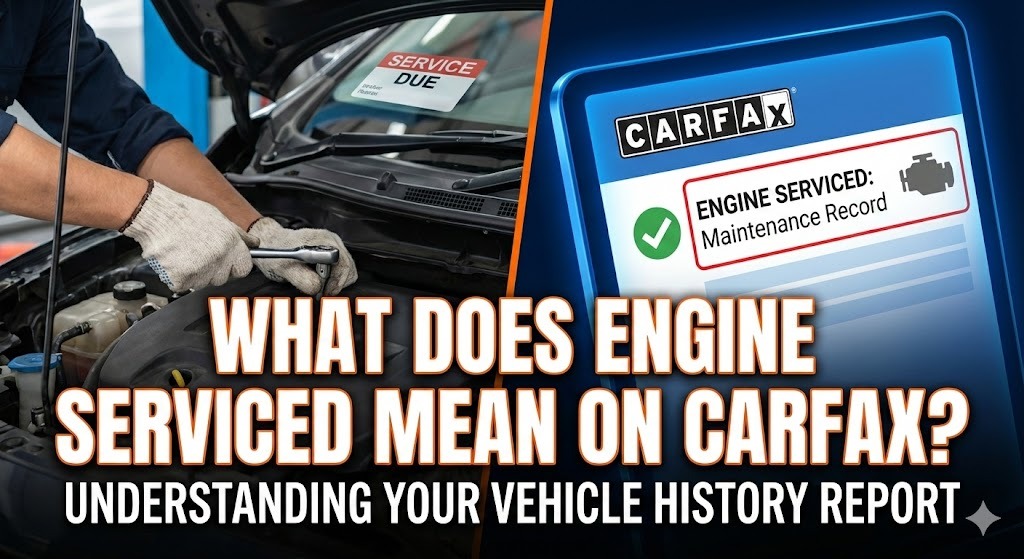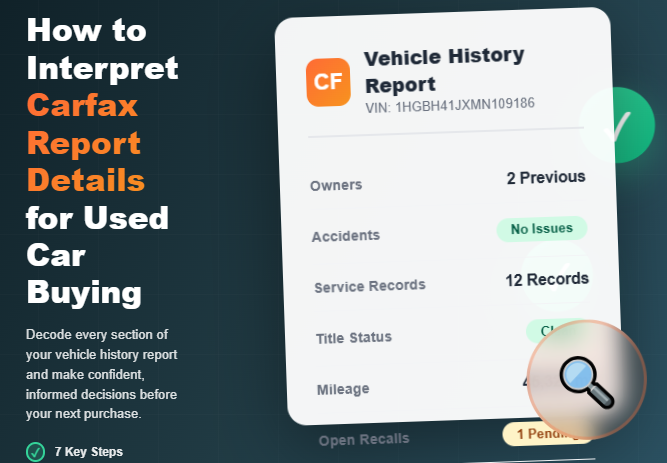
What to Look For In a Carfax Report? Cheap Carfax 2025
TD;LR
• Start with the basics: Check the title and number of owners. Fewer owners is usually better, and if you see Salvage, Flood, Lemon, or Rebuilt, you’re either negotiating hard or walking away.
• Mileage + maintenance: Odometer readings should climb steadily. Weird jumps or gaps in service history scream rollback or neglect.
• Accidents matter: Note the severity (minor/moderate/severe) and where the hit happened. Any frame/structural damage is a big caution flag.
• Helpful, not perfect: Carfax pulls from cops, insurers, shops, DMVs, auctions, and fleets, but it’s not real-time. Always cross-check with records and ask for proof.
When you approach a dealership to buy a used car, they will probably hand you a Carfax report. If you do not know what to look for in a Carfax report, you won’t be able to negotiate the price of the car properly.
Are you having the same problem? Well, yeah, you are not the first one to deal with Carfax report confusion. In this article, we will go through what you must check in a Carfax report.
By focusing on key warning signs like inconsistent mileage (over 2.14 million vehicles had their odometers rolled back in 2024, an 18 % increase since 2021) and unreported accident history (more than 450 000 vehicles are sold each year with false mileage, costing buyers over $1 billion annually), you’ll know precisely when to negotiate, or walk away.
Let's dive into it.
Key Sections in a Carfax Report to Check
Title History
Understanding how to read a Carfax title history is fundamental, especially for first-time car buyers. Think of the title as the car's birth certificate and legal ownership document. This section appears near the top of your Carfax report and contains crucial information that can make or break your purchase decision.

Ownership History
Look for a section like ownership history. As a general rule, fewer owners typically means better care and maintenance. A car with one careful owner who kept detailed service records is usually preferable to one that's been passed between multiple owners. However, don't automatically dismiss a multi-owner vehicle; sometimes people sell cars for legitimate reasons like relocation or family changes.

Title Brands (Critical Red Flags)
This is where you'll find the most important warnings. Title brands are official designations that stay with a car for life. Common brands include:





